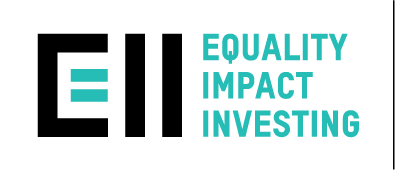The Impact Investing Sector Needs Renewed Professional Standards to Enable Equality Impact
By Rana Zincir Celal, EIIP Co Director
With interest growing in equality impact investing (EII), investors are realising the need to embed new skills and knowledge within their organisations to drive forward the EII agenda.
While the sector has rightly focused on various EDI (equity, diversity and inclusion) measures such as integrating people with lived experience into certain aspects of decision-making, it’s vital to go beyond representation and numbers. EDI falls short because the way it is usually applied is through a focus on increasing representation and/or inclusion of minoritised groups within existing institutions and processes, without a full re/assessment of the wider norms and frameworks that perpetuate inequality. The changes needed to tackle systemic inequality will not be unleashed through better EDI practice alone. In fact, many would argue that EDI acts to preserve the status quo.
A priority for EIIP over the coming year will be to articulate commonly-accepted standards for social and impact investors on embedding equality impact principles and strategies throughout the investment process, starting from equality focused priorities and goal-setting at the organizational level all the way through to impact management practices. By integrating EII holistically, as outlined here in our EII Toolkit, investors can tap into even greater opportunities to maximise their impact on inequality.
This transformation, in turn, will need to be powered by people working across all levels who are equipped to create, lead and manage an equality focused approach. This cannot be the primary responsibility of an Impact Manager or external consultants, inclusion partners or advisory board members.
While EIIP has been boosting investor capacity through our training programme, our view is that a wider conversation is urgently needed on the knowledge, skills and other attributes required for equality impact.
One great example we’ve recently come across is with the new Big Issue Invest – Unltd Impact Growth Fund, which changed the recruitment terms and processes for its Investment Committee out of a recognition that the expertise needed to make sound decisions required proximity to the communities and issues targeted by the equality-focused fund. This resulted in an all-female committee with very diverse experiences – a first in the sector.
We need to fundamentally redefine the competencies required at all levels – from Board members through to fund managers – to enable transformation towards equality. We maintain that each of these levels/roles/functions carries a core set of responsibilities and duties in upholding and enabling equality impact.
In 2022, EIIP will launch a process of articulating professional standards for equality impact, starting with a workshop in Q1. Key questions we will be asking include:
1. What core standards should be met when adopting equality impact investing principles and practices?
2. What baseline competencies are required for all board members, Investment Committee members, CEOs, investment directors, fund managers and impact managers to effectively engage in equality impact through their respective roles? What responsibilities do they respectively hold for equality impact?
3. Based on the defined responsibilities and competencies, what would we need to see in job adverts and recruitment processes within the sector?
4. What are the implications for education and training for those either entering or already within the sector?
Since EIIP is a collaborative project, the work of defining these standards and competencies will be carried out together with our colleagues in the field and will build on and link with pre-existing efforts to define and build wider impact investing learning frameworks by the EIIP UK Taskforce member Impact Investing Institute. Those of you who are at the forefront of the equality impact investment movement – especially our UK Taskforce members and the EII Pioneers – will be able to share what should be emphasised, both in terms of standards and on the skillset needed to carry out this work.
If you’re interested in getting involved, please write to us.
